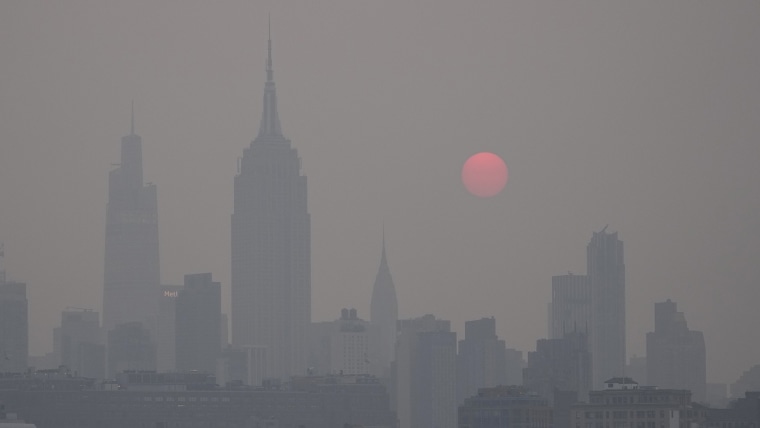"The liberty of a democracy is not safe if the people tolerate the growth of private power to a point where it becomes stronger than their democratic state itself."
— Franklin D. Roosevelt, 1938
This quote cuts to the heart of your piece: when platforms like Airbnb evolve from peer-to-peer sharing into private empires that shape our cities, distort our economies, and manipulate our behaviors, we’re no longer participating in innovation — we’re surrendering sovereignty.
Airbnb crackdown in NYC causes uproar from hosts and some homeowners
MATTRESSES AND MIRAGES: HOW AIRBNB WENT FROM UTOPIA TO URBAN CANCER — AND TOOK THE REST OF SILICON VALLEY WITH IT
By Adaptation Guide | Unfiltered Essays on Collapse
In 2007, two broke art students from San Francisco blew up an air mattress, handed out granola bars, and unknowingly launched a revolution. “AirBed & Breakfast” was born: a peer-to-peer hospitality dream based on trust, connection, and making cities more livable, not less.
Today, that dream has metastasized into a $85 billion monster that eats neighborhoods, displaces locals, and greenwashes profit as “community.” Welcome to the Silicon Valley fairy tale — turned dystopia.
The Lie We Slept On
Airbnb still speaks in the soft, seductive tones of its air mattress roots. You’re not a customer — you’re a guest. You’re not renting an overpriced apartment managed by a commercial conglomerate — you’re sharing a magical “experience” with a local “host.”
Photo-shoots and massages are now “Discoveries.” Everyone is on a first-name basis. Nothing screams profit extraction.
Everything whispers planet-healing global village.
But the branding is a cover story. In reality, Airbnb today is a hypercapitalist rent-hike machine that hijacks cities and hollows out communities.
In districts where entire buildings have been swallowed by short-term lets, streets go dark during the day, schools lose students, local clubs fold, and corner bakeries die.
What’s left? Boozy Airbnb parties at night, and cold, hollowed-out gentrification by morning.
Who Destroyed the Neighborhood?
It’s easy to point the finger at Airbnb — and let’s be honest, it deserves it. But it’s not the only villain in this story.
We are.
That’s the hard truth. Locals sell to commercial Airbnb operators for fat profits.
Politicians fail to build housing or regulate platforms.
Tourists hunt “authenticity” while crushing the very life that made these places worth visiting.
And cities — from Berlin to Barcelona to New York — oscillate between performative outrage and quiet collusion, even as they set up snitch platforms for residents to denounce each other.
And what has regulation achieved? Not much.
New York slashed Airbnb listings by 90%, yet hotel prices soared while rents barely dipped. That’s not justice. That’s whack-a-mole policy in a rigged market.
The Original Sin of Silicon Valley
Airbnb’s story is not unique. It’s the template. It’s the script every tech startup follows:
-
Start with a utopian promise.
-
Seduce users with freedom, savings, or connection.
-
Scale ruthlessly.
-
Attract VC cash.
-
Pivot from people to profits.
-
Monetize the commons.
-
Blame users when it all falls apart.
It’s how Uber disrupted labor rights.
How Facebook obliterated social trust.
How Venmo gamified financial surveillance.
How Twitter/X became a rage machine.
How Waymo pretends to be progress while gutting public transit.
How PayPal kills local economies with every cross-border fee.
Every Silicon Valley darling started as a “movement.” They end up as monopolies — serving investors, not humans.
Was Life Better Before?
Let’s ask the radical question:
Was life actually better before all this “innovation”?
Before strangers turned apartments into hotels and neighborhoods into theme parks?
Before “likes” replaced friendship?
Before gig workers became disposable cogs for apps that pretend to be their allies?
Before your location, habits, and payment data became venture capital gold?
Yes — life was better when the mattress was real, the host was human, and the city still belonged to its people.
Can You Still Book Airbnb with a Clean Conscience?
Sometimes, yes.
The old Airbnb still flickers — in a retired couple renting their garden shed, or a student letting out their room over break. It still enables real connection in rural areas with no hotels, still helps pay the mortgage for honest folks.
But those listings are now a minority — drowning in a sea of ghost hotels, investor blocks, and commercial fakes. If you care, you need to vet every booking like it’s a vote. Because it is.
The Path Back: Regulate, Resist, Rebuild
-
Regulate: Cities must outlaw corporate operators and protect residential housing at all costs. Ban auto-approval, enforce transparency, tax commercial hosts hard.
-
Resist: Travelers must stop feeding the machine. Book ethically. Choose places run by real people. Stay longer. Spend local.
-
Rebuild: Let’s resurrect the community ethos of Airbnb’s early days — not in tech platforms, but in real life. Couchsurfing, co-ops, eco-hostels, solidarity networks.
Silicon Valley didn’t just corrupt Airbnb. It corrupted us — by telling us that exploitation is convenience, that surveillance is safety, and that authenticity can be bought and sold.
The only antidote is human-scale connection, rooted in locality, equity, and consent.
Final Word
Airbnb is not about mattresses anymore. It’s about markets.
And every time you book, you have to ask:
Am I participating in a revolution — or a real estate scam wrapped in a startup logo?
It’s time to stop sleeping on the truth.
Sources & Suggested Reading:
Support local journalism.
Support housing justice.
Resist digital feudalism.
cheers,
Adaptation-Guide


No comments:
Post a Comment